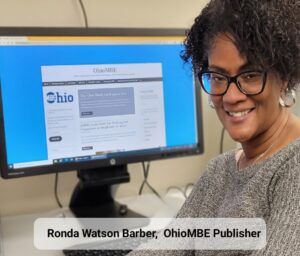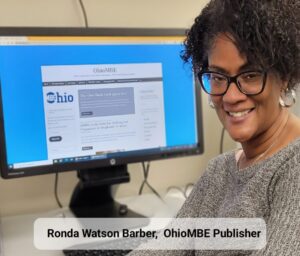
By Ronda Watson Barber
OhioMBE Publisher
In my recent editorial, I expressed deep concern over the dismal state of business opportunities for Black-owned enterprises in Columbus, a situation exacerbated by the actions of Black individuals in positions of power. This includes the “Young Negroes,” a term I’ve coined to describe not only young, appointed Black men but also those whose thinking aligns with this group, regardless of their age. These individuals have benefited from the sacrifices of the Civil Rights movement and the desegregation of Columbus City Schools, yet seem to disregard this legacy in their policy-making.
The City Council’s decision to allow non-citizens to participate in its certification program and compete for city contracts is a prime example. Despite their open identification with their Black heritage, these council members have made decisions that ironically benefit everyone but the Black community. The certification programs, intended to rectify past discrimination against Black individuals, have seen white women receiving the majority of contracts, leaving Black women significantly behind.
In contrast to the “Young Negroes,” the term “New Negroes” emerged during the Harlem Renaissance, representing a profound redefinition of Black identity. The New Negroes of the Harlem Renaissance were intellectuals, artists, and activists who rejected the stereotypes of the submissive and inferior Black person. They embraced self-expression, racial pride, and intellectual freedom, actively challenging the pervasive racism and stereotypes of their time.
Turning to Columbus City Schools (CCS), the situation mirrors the city’s. The business operations division of CCS, led by a Black man who adopts a Clarence Thomas-like, race-neutral position in hiring and purchasing, raises questions about the awareness of white buyers within the district. Despite this purported neutrality, purchasing patterns overwhelmingly favor white vendors who do not contribute to the district’s tax base. This is particularly concerning given the predominantly Black student population of the district. Black vendors face significant barriers in participating in the district’s purchasing processes, leading to their economic marginalization. Even under the leadership of two Black women, CCS has seen no substantial progress for Black businesses and taxpayers.
This systemic issue highlights a troubling trend where the sacrifices of Black taxpayers are not equitably reinvested into their businesses and communities. It’s a stark reminder that Columbus taxpayers are supporting contracts that benefit businesses outside their immediate community, particularly those in the suburbs. The contrast between the “Young Negroes” of today, including those within CCS and in the City of Columbus, and the “New Negroes” of the Harlem Renaissance is stark, reflecting a divergence in the understanding and advocacy of Black identity and empowerment.
I swear to the Lord, I still can’t see, why Democracy means, everybody but me. ~ Langston Hughes
just my thought…rwb
